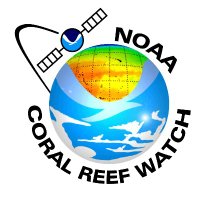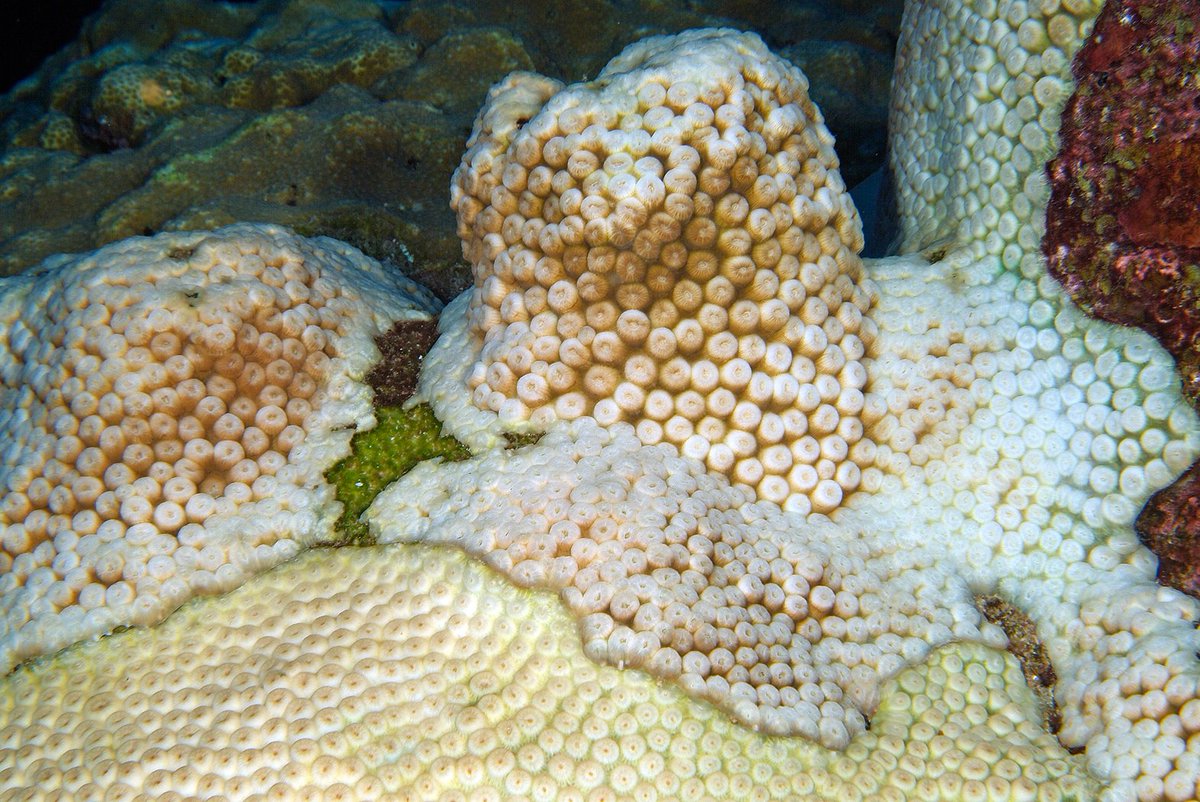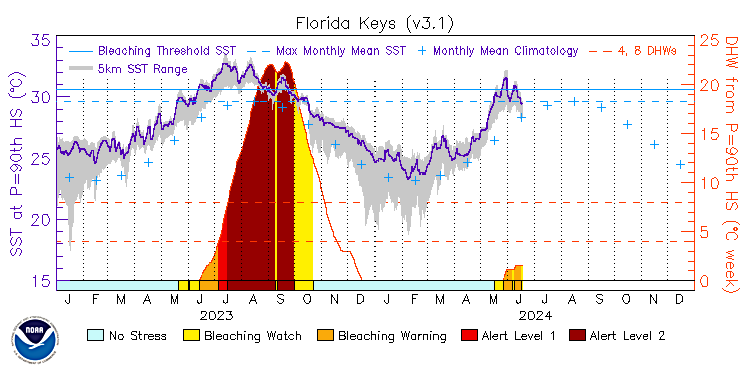
Coral Reef Watch
@coralreefwatch
Official Twitter feed of NOAA Coral Reef Watch. We use satellites and models to observe, predict and report to users about the coral reef environment globally.
ID: 4928384884
https://coralreefwatch.noaa.gov 18-02-2016 16:23:04
1,1K Tweet
7,7K Followers
480 Following


Check out this podcast with Coral Reef Watch 's director, Derek Manzello, on the latest global bleaching event - and why we need to work together #ForCoral!


El Niño is officially OVER according to NWS Climate Prediction Center and we are in neutral conditions while we wait for La Niña to develop. In this week's ENSO Blog our experts discuss if a strong El Niño portends a strong La Niña... Read all the details: climate.gov/news-features/…


Are you seeing #CoralBleaching or no bleaching currently? Send your data and observations to Coral Reef Watch: coralreefwatch.noaa.gov/satellite/rese… 📷Joyce & Frank Burek/NOAA's Flower Garden Banks Natl Marine Sanctuary


Happy 30th anniversary to ICRI Secretariat! The International Coral Reef Initiative kicked off in 1994 and has been a critical champion #ForCoral ever since! 🪸 💪 icri30.org #ICRI30

We collaborated with international partners during a week-long workshop on ReefCloud, an online, user-friendly platform developed by Australian Institute of Marine Science that uses artificial intelligence (AI) to assist with monitoring coral reefs. #TheMoreYouKnow #ReefCloud noaa.gov/ai


Good news and some potential relief for corals in Florida! Tropical Storm Alberto has pushed sea surface temperatures down to a Bleaching Watch. Coral Reef Watch #CoralReefs #SST coralreefwatch.noaa.gov/data_current/5…


The summer is hot, and so are water temperatures 🌡️ Florida is hanging in there, but be aware of increasing temperatures elsewhere in the Caribbean. Please send your observations of the presence AND absence of coral bleaching to Coral Reef Watch ! coralreefwatch.noaa.gov/satellite/rese…








During ICRI Secretariat's General Meeting this week, we facilitated a session on the monitoring and management response to the fourth global bleaching event. icriforum.org/bleaching-hub/ Coral Reef Watch ONU Medio Ambiente América Latina y el Caribe/UNEP UN Environment Programme CORDIO East Africa Maldives Marine Research Institute Australian Institute of Marine Science #CoralReefs #ForCoral



Coral Reef Watch is keeping their eye on the western Pacific, where heat stress is still building. Check out the latest information from their virtual station on Guam. coralreefwatch.noaa.gov/product/vs/map…








